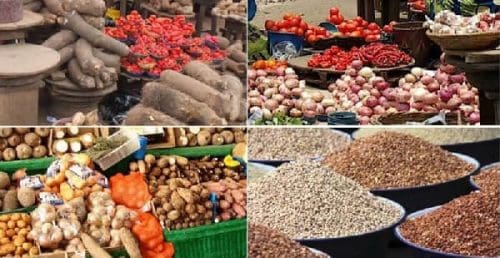
Ghana’s persistently high food prices could ease if the government delivers on its plan to upgrade rural farm roads, according to Dr. Felix Mawuli Kamassah, President of the Vegetable Producers and Exporters Association of Ghana (VePEAG). Dr. Kamassah described the 2026 Budget’s focus on feeder roads in food producing communities as a major policy shift for the agricultural sector.
He noted that deteriorating road networks remain a key but often overlooked driver of food inflation, forcing farmers to pass high transport costs onto consumers. The agricultural leader warned that until rural access roads improve, market prices will stay high even during bumper harvests.
Much of Ghana’s vegetables and staples come from remote communities where poor road conditions limit transport options. Farmers often rely on tricycles or motor carts, paying elevated fees to move produce to collection points. By the time goods reach markets in Accra, Kumasi, and other cities, transport costs have already doubled, contributing to higher food prices.
Drivers avoid farm communities due to bad roads, leaving farmers to shoulder the extra costs, Dr. Kamassah explained. The VePEAG president is also Vice President of the Federation of Association of Ghanaian Exporters (FAGE) and Chief Executive Officer of Marphlix Trust Ghana Limited.
Finance Minister Dr. Cassiel Ato Forson has identified poor feeder roads as a major contributor to food inflation, announcing a three year plan to construct 1,000 kilometres of agricultural enclave roads. The government allocated GH¢828 million for the project when presenting the 2026 budget on November 13, 2024. The initiative aims to link farms directly to markets, reduce transport costs, cut post harvest losses, and enhance food security.
Dr. Kamassah welcomed the initiative, emphasizing that timely completion of the roads would reduce transport charges and ensure farmers earn fair value for their produce. VePEAG is actively monitoring the priority roads and remains hopeful that the timelines will be met, he said.
He also endorsed the budget’s commitment to provide over 4,000 agricultural machines across 50 districts through Farmer Service Centres. Under the Farmer Service Centres initiative, 50 districts would benefit from equipment including 660 tractors, 300 tractor trailers, 200 minitractors, and various planting and harvesting equipment.
Timely access to mechanization is critical, he said, noting that delayed delivery of tractors and machinery leads to lower yields, higher production costs, and ultimately higher market prices.
Irrigation is another priority. With increasingly unpredictable rainfall due to climate change, rehabilitating existing irrigation sites and expanding infrastructure under the Ghana Irrigation Development Authority (GIDA) could boost production and lower food prices, Dr. Kamassah said.
Minister of Food and Agriculture Eric Opoku expressed concern that although the nation possesses irrigable land estimated at 1.9 million hectares, only 226,000 hectares are under irrigation. He gave assurance of government commitment to rehabilitate existing irrigation infrastructure while building new facilities.
Improved roads, mechanization, and irrigation would also strengthen Ghana’s competitiveness in international fresh vegetable markets, Dr. Kamassah added. Countries such as Kenya and Morocco benefit from lower logistics costs, and similar investments would give Ghanaian farmers the stability to produce competitively for both local and export markets.
Food inflation remains one of Ghana’s toughest economic challenges, with poor feeder roads, inefficient logistics, and post harvest losses consistently identified as primary drivers. Dr. Kamassah stressed that the government’s commitment to targeted investments is promising, but the results depend on timely delivery.
VePEAG was established in October 1997 by individual farmers and exporters and focuses on year round vegetable production for international and local markets. The association provides packaging and storage services, market information, and assists members with business development plans.
Dr. Kamassah emphasized that while stakeholders are pleased with the budget allocations, what matters most is that the roads, machines, and irrigation facilities are built on time. That is what will truly reduce food prices for ordinary Ghanaians, he said.
